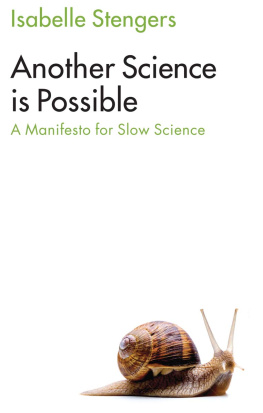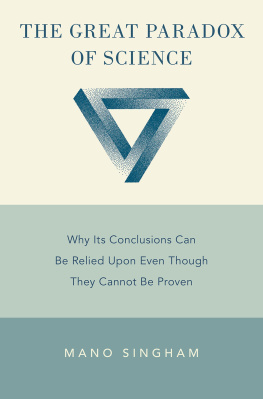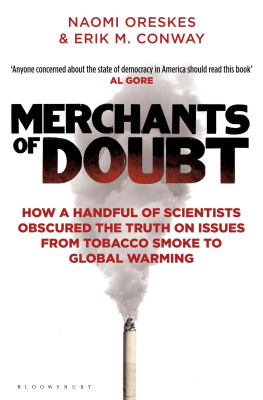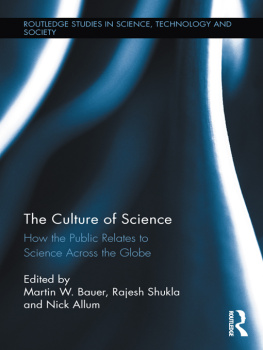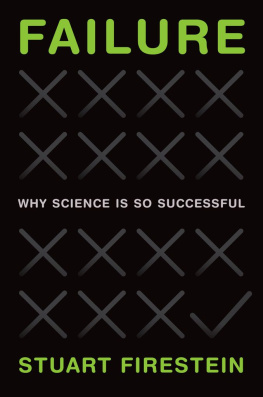Contents
Guide
Pages

Another Science is Possible
A Manifesto for Slow Science
Isabelle Stengers
Translated by Stephen Muecke
polity
First published in French (excluding Chapter 4) as Une autre science est possible! Manifeste pour un ralentissement des sciences ditions La Dcouverte, Paris, France, 2013
French text of Chapter 4 Isabelle Stengers
This English edition Polity Press, 2018
Polity Press
65 Bridge Street
Cambridge CB2 1UR, UK
Polity Press
101 Station Landing, Suite 300
Medford, MA 02155, USA
All rights reserved. Except for the quotation of short passages for the purpose of criticism and review, no part of this publication may be reproduced, stored in a retrieval system or transmitted, in any form or by any means, electronic, mechanical, photocopying, recording or otherwise, without the prior permission of the publisher.
ISBN-13: 978-1-5095-2184-5
A catalogue record for this book is available from the British Library.
Library of Congress Cataloging-in-Publication Data
Names: Stengers, Isabelle, author.
Title: Another science is possible : a manifesto for slow science / Isabelle Stengers.
Other titles: Autre science est possible! English
Description: English edition. | Cambridge, UK : Polity, [2017] | Includes bibliographical references.
Identifiers: LCCN 2017026397 (print) | LCCN 2017027589 (ebook) | ISBN 9781509521838 (Mobi) | ISBN 9781509521845 (Epub) | ISBN 9781509521807 (hardback) | ISBN 9781509521814 (pbk.)
Subjects: LCSH: Research--Social aspects. | Science--Social aspects. | Science--Philosophy.
Classification: LCC Q180.A1 (ebook) | LCC Q180.A1 S73513 2017 (print) | DDC 501--dc23
LC record available at https://lccn.loc.gov/2017026397
The publisher has used its best endeavours to ensure that the URLs for external websites referred to in this book are correct and active at the time of going to press. However, the publisher has no responsibility for the websites and can make no guarantee that a site will remain live or that the content is or will remain appropriate.
Every effort has been made to trace all copyright holders, but if any have been inadvertently overlooked the publisher will be pleased to include any necessary credits in any subsequent reprint or edition.
For further information on Polity, visit our website: politybooks.com
For the GECo.
For Serge Gutwirth
For all those who allowed me to think that this is not simply utopian.
Towards a Public Intelligence of the Sciences
Should the public understand the sciences?
Our Anglophone friends speak of the public understanding of science. But what is meant by understand here? Many people think each citizen should have the basic scientific equipment (or literacy) necessary to understand the world we live in, and especially to accept the legitimacy of the transformations of the world that the sciences bring about. In fact, when the public begins to resist an innovation that scientists have backed, as notably in the case of GMOs, the usual diagnosis points to the lack of such understanding. Thus, the public apparently fails to understand that the genetic modification of plants is not essentially different from what farmers have been doing for millennia, but is just faster and more effective. Others say that the methods that make for scientificity have to be understood first, and that the public supposedly mixes up facts and values because it doesnt understand that scientists are free not to ask certain questions. Of course, it is not a matter of denying citizens the right to accept or reject an innovation, but they should do so only on the basis of solid reasons, and not confuse scientific facts with their own convictions or values. The need for an apprenticeship in the sciences, it is argued, is founded on the fact that close observation, the formulation of hypotheses and their verification or refutation, form the basis not only for the construction of scientific knowledge but for all rational procedures. The sciences are therefore a model that every citizen should follow in their daily lives.
Such arguments are used today to justify a veritable order word coming from public authorities when faced with a somewhat suspicious citizenry. If the latter are sceptical about the benefits the sciences bring to society, the response will be: The public and its science have to understand each other. The possessive its implies what standard science lessons in school try to get across: scientific reasoning belongs by right to all, in the sense that, confronted with the same facts as Galileo or Maxwell, each of us could have drawn the same conclusions.
Of course, anyone with even a minimal exposure to the history of science, or to the sciences themselves as they are made, can easily conclude that the anonymous rational being drawing these same conclusions is just the correlate of the rational reconstruction of the situation, from which any reason for hesitation has been purged, and where the facts literally shout out the conclusion they lead to with all the authority one could wish for.
In any event, laboratory conditions, reconstructed or not, have very little to do with those situations we are confronted with as citizens. For the latter, I would use Bruno Latours felicitous phrase, matters of concern, which, in opposition to what are presented as matters of fact, insists that we think, hesitate, imagine and take sides. Concern happily incorporates the notions of preoccupation and choice, but also the idea that there are situations that concern us before they become objects of preoccupation or choice, situations which, in order to be appropriately characterised, demand that we feel concerned. We should not talk about these situations being politicised, as too many scientists complain. They are a long way from being occasions for the more or less arbitrary or contingent expression of political engagement; rather, what they require is the power to make people think about what concerns them, and to refuse any appeal to matters of fact that would bring about a consensus. If there is a question to be asked, then, it is first of all how such situations have so often come to be separated from this very same power, which they require.
To return to GMOs, they constitute a quite different matter of concern from laboratory GMOs defined in terms of the preoccupations of biologists working away in well-monitored spaces. GMOs cultivated across thousands of hectares raise questions to do with genetic transfer and pesticide-resistant insects, questions that cant be raised at the level of the laboratory, not to mention issues such as patent applications for modified plants, the reduction (already critical) of biodiversity, or the runaway use of pesticides and fertilizer.
The essential thing with matters of concern is to get rid of the idea that there is a single right answer and instead to put what are often difficult choices on the table, necessitating a process of hesitation, concentration and attentive scrutiny and this despite the complaints of the entrepreneurs, for whom time is money and who demand that everything that is not prohibited be allowed. Then there is the propaganda, often in conjunction with scientific expertise, that all too frequently presents an innovation as the correct solution in the name of science. This is why I would propose, in place of the notion of understanding, a public intelligence [intelligence publique] of the sciences, involving the creation of intelligent relationships not just with scientific outcomes, but with scientists themselves.

